EURAKNOS
EURAKNOS wanted to strengthen the EU agricultural knowledge base by co-creating « the network to connect all thematic networks », to explore the feasibility of creating a modular database of useful findings from various thematic networks.
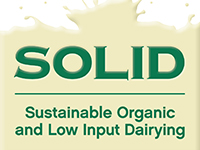
SOLID - Sustainable Organic and Low-Input Dairying
SOLID was a European project on Sustainable Organic and Low Input Dairying financed by the European Union.The project aimed to improve the technical performance and economic competitiveness of organic and lowinput dairy systems in Europe, while maximising their potential to deliver environmental goods and enhance biodiversity.
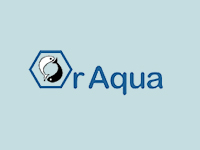
OrAqua
The overall vision of the OrAqua project where the economic growth of the organic aquaculture sector in Europe, supported by science based regulations in line with the organic principles and consumer confidence.
Transparent food
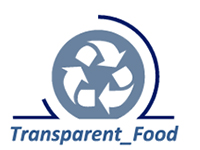
ICROFS was involved in the EU FP7 research project, Transparent_Food. This project aimed at "contributing to the development of transparency in the sector by supporting understanding of its complexities, identifying the present state-of-the-art, learning from experiences, making stakeholders aware, specifying deficiencies and research needs, and formulating a research framework for facilitating future research initiatives”.
Transparent food

ICROFS was involved in the EU FP7 research project, Transparent_Food. This project aimed at "contributing to the development of transparency in the sector by supporting understanding of its complexities, identifying the present state-of-the-art, learning from experiences, making stakeholders aware, specifying deficiencies and research needs, and formulating a research framework for facilitating future research initiatives”.
OK-Net EcoFeed
OK-Net EcoFeed is coordinated by IFOAM EU and involves 19 partners from 11 countries throughout Europe. OK-Net EcoFeed will work with farmers, breeders and the organic feed industry to make practical solutions available to improve the use of organic and regional feed.
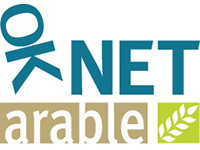
OK-Net Arable
The overall aim of the thematic network ‘OK-Net Arable’ is to improve the exchange of innovative and traditional knowledge among farmers, farm advisers and scientists to increase productivity and quality in organic arable cropping all over Europe, in order to satisfy future market demand.
VOA3R
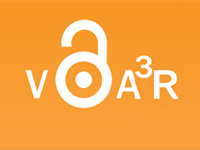
The EU FP7 research project, VOA3R, Virtual Open Access Agriculture & Aquaculture Repository, was about sharing scientific and scholarly research related to agriculture, food, and environment.
The VOA3R platform aims at re-using existing and mature metadata and semantics technology to deploy an advanced, community-focused integrated service for the retrieval of relevant open content and data that includes explicit models of the scholarly methods and procedures used and of the practical tasks targeted by applied research.
VOA3R

The EU FP7 research project, VOA3R, Virtual Open Access Agriculture & Aquaculture Repository, was about sharing scientific and scholarly research related to agriculture, food, and environment.
The VOA3R platform aims at re-using existing and mature metadata and semantics technology to deploy an advanced, community-focused integrated service for the retrieval of relevant open content and data that includes explicit models of the scholarly methods and procedures used and of the practical tasks targeted by applied research.
QualityLowInputFood (QLIF)
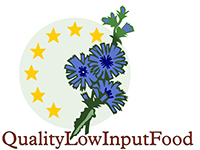
The goal of the project was to improve the quality and food safety and to reduce the costs in organic and "low input" food production systems.
QualityLowInputFood is an integrated project funded by the European Commission.
Each integrated project is aimed at obtaining specific results relevant either to increasing the impetus to Europe’s competitiveness or to addressing major societal needs.
The integrated project is therefore an instrument to support objective driven research, where the primary deliverable is new knowledge.
In addition, integrated projects can also be expected to have a structuring effect on the fabric of European research, by mobilising a critical mass of resources.
QualityLowInputFood (QLIF)

The goal of the project was to improve the quality and food safety and to reduce the costs in organic and "low input" food production systems.
QualityLowInputFood is an integrated project funded by the European Commission.
Each integrated project is aimed at obtaining specific results relevant either to increasing the impetus to Europe’s competitiveness or to addressing major societal needs.
The integrated project is therefore an instrument to support objective driven research, where the primary deliverable is new knowledge.
In addition, integrated projects can also be expected to have a structuring effect on the fabric of European research, by mobilising a critical mass of resources.
CERTCOST
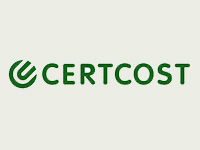
Research project, "Economic Analysis of Certification Systems for Organic Food and Farming" (CERTCOST) The main objective of the project was to generate research-based recommendations to relevant stakeholders on how to improve the organic food certification system in terms of efficiency, transparency and cost effectiveness.
Read more about the project and the results
CERTCOST

Research project, "Economic Analysis of Certification Systems for Organic Food and Farming" (CERTCOST) The main objective of the project was to generate research-based recommendations to relevant stakeholders on how to improve the organic food certification system in terms of efficiency, transparency and cost effectiveness.
Read more about the project and the results
Organic Inputs Evaluation
“Harmonised and Standardised Procedures for Evaluation of Plant Protection Products, Fertilizers and Soil Conditioners for Use in Organic Agriculture” The objective of the project was to develop recommendations for harmonization and standardization of procedures for evaluation of plant protection products, fertilizers and soil conditioners for use in organic agriculture according to the Council Regulation EEC No. 2092/91.ICROFS (formerly DARCOF) was the administrative coordinator of the project.
Organic Inputs Evaluation
“Harmonised and Standardised Procedures for Evaluation of Plant Protection Products, Fertilizers and Soil Conditioners for Use in Organic Agriculture” The objective of the project was to develop recommendations for harmonization and standardization of procedures for evaluation of plant protection products, fertilizers and soil conditioners for use in organic agriculture according to the Council Regulation EEC No. 2092/91.ICROFS (formerly DARCOF) was the administrative coordinator of the project.
EEC 2092/91 (Organic) Revision
“Research to Support Revision of the EU Regulation on Organic Agriculture” ICROFS (formerly DARCOF) was the coordinator of the project and it had the overall objective to provide research based recommendations for the development of the Council regulation on organic agriculture.
EEC 2092/91 (Organic) Revision
“Research to Support Revision of the EU Regulation on Organic Agriculture” ICROFS (formerly DARCOF) was the coordinator of the project and it had the overall objective to provide research based recommendations for the development of the Council regulation on organic agriculture.
EISFOM
“European Information System for Organic Markets” (EISfOM)The aim of the project was to build up a framework for reporting valid and reliable data for relevant production and market data about the European organic sector in order to meet the needs of policy makers, farmers, processors, wholesalers and other actors involved in organic markets.
EISFOM
“European Information System for Organic Markets” (EISfOM)The aim of the project was to build up a framework for reporting valid and reliable data for relevant production and market data about the European organic sector in order to meet the needs of policy makers, farmers, processors, wholesalers and other actors involved in organic markets.
SAFO
“Sustaining Animal Health and Food Safety in Organic Farming” (SAFO) The main objective of the project was to improve food safety and sustaining animal health in organic farming in existing member states and candidate member countries of the European Union through exchange and active communication of research results and conclusions between researchers, policy makers, farmers and the wider stakeholder community including consumers.
SAFO
“Sustaining Animal Health and Food Safety in Organic Farming” (SAFO) The main objective of the project was to improve food safety and sustaining animal health in organic farming in existing member states and candidate member countries of the European Union through exchange and active communication of research results and conclusions between researchers, policy makers, farmers and the wider stakeholder community including consumers.